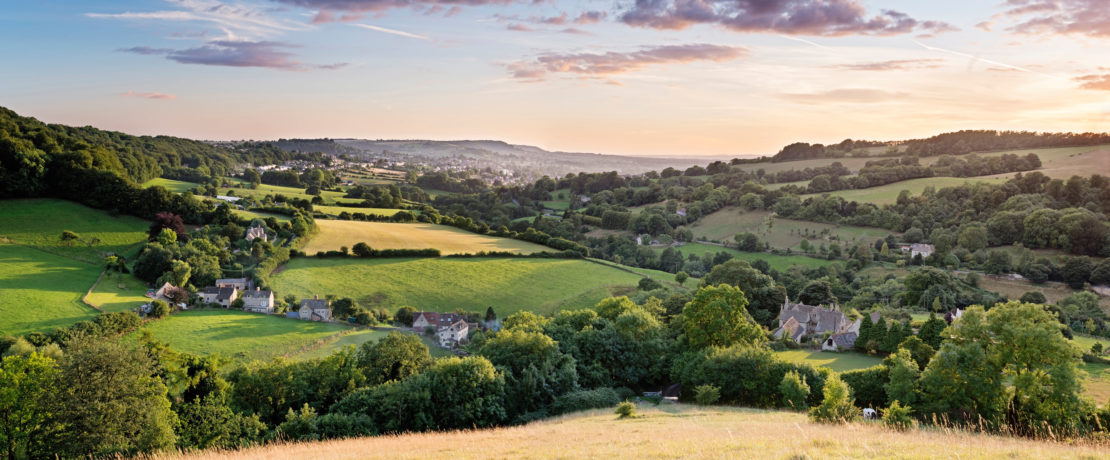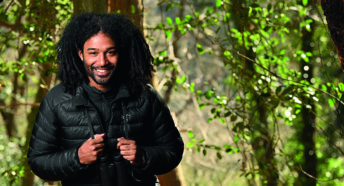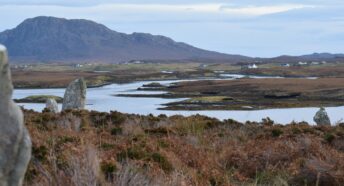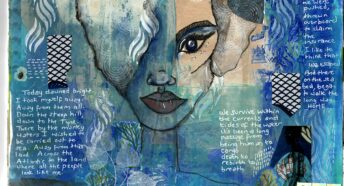‘I’m a hippy from the Cotswolds’; Adjoa Andoh’s rural roots
A familiar face from British stage and screen, Adjoa Andoh discusses her country upbringing, the pressures facing our rural villages, and why it’s worth paying more for quality food.
I was born in Bristol, and grew up in the tiny village of Wickwar in the Cotswolds. The nearest ‘metropolis’ was Wotton-under-Edge, where all the farmers would bring their sheep down from the hills to market. We grew up in a 16th-century labourer’s cottage, where my dad and my stepmother still live – so I get to stay in my old bedroom and enjoy that beautiful Cotswolds horizon! Even now, the Wi-Fi only works in one room, because there’s no getting through those two-foot-thick stone walls.
I grew up near country estates like the ones in Bridgerton. We filmed at Badminton, and I still remember how excited I was, as a kid, to go there when the horse trials were on. The Duchess of Westminster also lived in a big pile at the end of our village, and would open her gardens for a fete every summer. Many local people worked on those estates; some families had been there for generations. There were carnivals on the village green, cream teas and cricket. I had an incredibly privileged window on a world that was disappearing; an intimate, local rural life.
My father, brother and I were the only black people in the village, and it was the 1960s, so that had its challenges. It was quite violent at times, and I had to learn to fight. Yet I loved growing up in the countryside. Nature was our playground: we’d swim in gravel pits, climb trees and go blackberrying. I learned to milk cows by hand, and played in treehouses by the medieval packhorse bridge. I remember reading Cider with Rosie and thinking, ‘That’s my childhood!’
A transformed landscape
What’s happening to the village where I grew up is happening in a lot of villages across the country. Huge housing estates are being built on the edge of the village that are transforming its shape. Meanwhile, the old village shop where I had my first Saturday job has recently been put out of business by the Waitrose down the road. Much as I’m not a NIMBY, I feel like the nature of the village is changing. The scale of building is often overwhelming, while local amenities and support systems are being lost, so these villages start to become dormer towns.
Affordability is also a big problem. My dad used to be on the parish council, and even 20 years ago, trying to create more affordable housing for local people was a huge issue. Nobody who grew up in the village could afford to stay there. Unfortunately, that’s the story for young people all over the place now, including my own kids in Brixton.
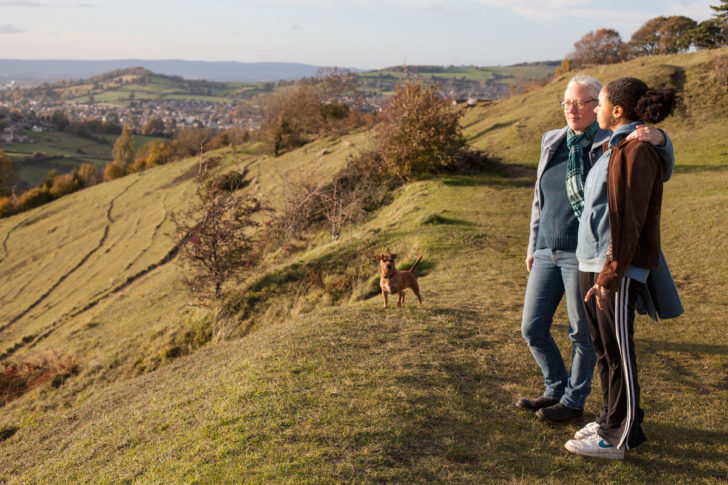
Connecting with nature
People need access to nature. We’ve seen, in recent times, what a great healer it is. It’s a restorer of energy and confidence and joy. It incenses me that so many of our free spaces are getting privatised, or taken out of the reach of those on limited income who need it for their physical and mental health.
People often think of the UK’s minority and immigrant communities as ‘urban’. Yet most people who emigrate here from the West Indies or from South Asia come from rural communities originally, although they end up living and working in big conurbations where they no longer have easy access to nature. Inviting and encouraging people to access those environments again is really important. I know how, if you walk into certain places as a black person, people look at you like you’re a Martian. There’s work to be done to try and shift that perception, because we are all part of nature, and we all feel better for being in it.
When I first moved to London, I missed walking in uninterrupted countryside. But it’s a pretty amazing city in terms of green spaces. It upsets me that many local authorities have realised there is money to be made by hiring out spaces for events that prevent public access. We need outdoor space where people can picnic and be together. Here in Lambeth, we have the Lambeth Country Show in Brockwell Park, which has sheep shearing and wonky veg stalls, and is open to the public. It’s heaven!
Origins of our food
A rural upbringing makes you realise that you have to work for things. If you shake this cream long enough, it will become butter. If you plant that seedling, it will grow into a carrot. If you keep your cows healthy, they will keep producing milk. It’s good to have a sense of the effort that takes, and know that food doesn’t just magically appear.
People say meat is becoming expensive, but it should be. There’s a living creature that needs to be treated well and raised sustainably. That might mean only buying meat three or four days a week, instead of seven. But we have to get back a sense of what things cost. If you’ve seen chickens pecking in a field, and you’ve seen chickens caged in a factory farm, you know the difference.
I’m a hippy from the Cotswolds at heart. I think we’re made of nature, and we should be ingesting nature. I’m into natural, pesticide-free foods, and I think more of us are coming back to that as we start to realise the effects of pharmaceutical chemicals on ourselves and the environment.
If you have access to the countryside, and an appreciation of nature, you’re less likely to dump stuff in it. Like anything in life, if you’ve got some skin in the game – some emotional investment and connection to something – you take care of it better. It’s important to me that nature has been a big part of my own kids’ childhoods. I’ll continue to visit the countryside as much as possible, and I’ll probably end up living there at some point. I think we often go full circle in the end.
One of Britain’s leading theatre, TV, film and radio actors, Adjoa Andoh currently stars as Lady Danbury in hit Netflix drama Bridgerton.
A version of this article was originally published in CPRE’s award-winning magazine, Countryside Voices. You’ll have Countryside Voices sent to your door three times a year, as well as access to other benefits including discounts on attraction visits and countryside kit from major high street stores when you join as a CPRE member. Join us now.
